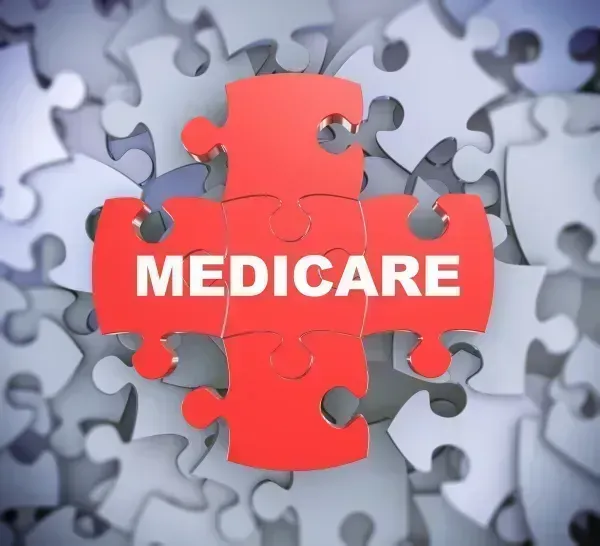Expect Reduced Burdens, Cutbacks, and Delays, MPFS Final Rule Suggests

CMS spotlights telehealth, diabetes prevention, and quality adjustments in 2018. The twin titans of Medicare reimbursement are quality and value under MACRA, so it's only natural that CMS ease up on practice requirements in order to improve patient care. And while new additions do abound, the agency's output highlights efforts to scale back mandates and delay past proposals - some indefinitely. Background: On Nov. 2, 2017, CMS issued the Medicare Physician Fee Schedule (MPFS) final rule for CY 2018 with program updates, new payment policies and rates, delays, and templates for up-and-coming Medicare initiatives slated to begin on Jan. 1, 2018. The agency continues to center its adjustments around quality and value-based care across healthcare platforms. And new programs suggest CMS plans to push forward with measures to cut back healthcare's rising administrative burdens. The final rule was published in the Federal Register on Nov. 15. Read the Final Rule here: www.gpo.gov/fdsys/pkg/FR-2017-11-15/pdf/2017-23953.pdf. Don't Fret About Electronic Paperwork, CMS Says Stakeholder input matters to CMS, the MPFS fact sheet suggests. A new program launched last month and outlined in the final rule addresses medical groups' complaints that administrative burdens are impeding patient care. "The Patients Over Paperwork Initiative" aims to improve collaboration and care by streamlining "regulations with a goal to reduce unnecessary burden, increase efficiencies, and improve the beneficiary experience," noted CMS in a release. "During my visits with clinicians across the country, I've heard many concerns about the impact burdensome regulations have on their ability to care for patients," said Seema Verma, CMS Administrator. "These rules move the agency in a new direction and begin to ease that burden by strengthening the patient-doctor relationship, empowering patients to realize the value of their care over volume of tests, and encouraging innovation and competition within the American healthcare system." The final rule implements "Patients Over Paperwork" by cutting down data reporting and "removing downward payment adjustments based on performance for practices that meet minimum quality reporting requirements," says the MPFS fact sheet. "Our overall vision is to reinvent the agency to put patients first," declared Verma about the initiative during her address at the Health Care Payment Learning and Action Network (LAN) Fall Summit. "We want to partner with patients, providers, payers, and others to achieve this goal." Telehealth Expands with New Code Options CMS continues to invest in telehealth as Medicare moves beyond the traditional venues to more alternative settings for enhanced patient care. However, the fact sheet noted that stakeholder input was mixed on the new options, as some clinicians felt the codes don't support new technologies or are too broad to be fully realized. The MPFS finalized the following CPT® and HCPCS codes for telemedicine in 2018: Extras: CMS dropped the GT modifier (Via interactive audio and video telecommunication systems) and will no longer require it for telehealth claims. "Anytime a billing requirement is removed it is positive, one less regulation to potentially 'trip over,'" says Vinod Gidwani, founder and president of Currence Inc. in Skokie, Illinois (medcurrence.com). "Telemedicine will continue to expand and its potential to bend the cost curve is one of the positive innovations taking place in healthcare." The MPFS also noted that CPT® code 99091 (Collection and interpretation of physiologic data (eg, ECG, blood pressure, glucose monitoring) digitally stored and/or transmitted by the patient and/or caregiver to the physician or other qualified health care professional, qualified by education, training, licensure/regulation (when applicable) requiring a minimum of 30 minutes of time), which was bundled with other codes in the past, will be revalued and paid separately now. Consider These Other Important MPFS Updates CMS tied up loose ends in regard to its Medicare Diabetes Prevention Program (MDPP), which is expanding in 2018 as an "intervention tool" for providers. The expansion supports bonuses for Part B clinicians furnishing services through an Advanced Alternative Payment Model (APM) under the Quality Payment Program (QPP). According to the payment structures outlined in the final rule, beneficiary weight loss and program attendance factor greatly into Medicare's reimbursement equation to combat type 2 diabetes for enrolled suppliers. Interested parties can start MDPP enrollment on Jan. 1 with the "effective date of billing privileges" beginning April 1, 2018. See the fact sheet at: https://innovation.cms.gov/Files/fact-sheet/mdpp-cy2018fr-fs.pdf. E/M rules: The jury is still out on proposed E/M documentation changes that impact the level of code providers use - which also happens to impact the amount providers are paid - as CMS continues to weigh stakeholders' comments. Despite admitting that the current requirements are "potentially outdated and need to be revised," the agency did not move forward with revisions like it originally proposed in July. QPP updates: Due to providers' confusion over the changes required by replacement of the Physician Quality Reporting System (PQRS) by the Quality category under the Merit-Based Incentive Payment System (MIPS), CMS decreased the requirements for 2016 reporting in the final rule. This adjustment changes the "reporting of 9 measures across 3 National Quality Strategy domains to ... reporting of 6 measures for the PQRS with no domain requirement," CMS noted. The final rule brings PQRS in alignment with Quality under MIPS and will reduce the chances of eligible clinicians getting a 2.0 percent pay cut in 2018. MACRA-backed initiatives were updated in the MPFS final rule and include: AUC delay: Sticking with its scaled-back efforts and MACRA alignment, CMS did not give a start date for the Medicare Appropriate Use Criteria (AUC) Program for Advanced Diagnostic Imaging. With a suggested start date of Jan. 1, 2020, "qualified provider-led entities are permitted to develop AUC, and qualified clinical decision support mechanisms are the tools that physicians use to access the AUC," notes the agency guidance. "Physicians may begin exploring these mechanisms well in advance of the start of the Medicare AUC program through the voluntary participation period that will begin mid-2018 and run through 2019." OPPS Payment Cut Punishes Providers The MPFS final rule for non-excepted off-campus departments reduces Medicare payments for goods and services from 50 percent to 25 percent of the Hospital Outpatient Prospective Payment System (OPPS) rate for the 2018 calendar year. This may surprise some since the current OPPS rate was just introduced in January 2017, and the change is notable, suggests attorney Benjamin Fee, Esq. of Dorsey and Whitney LLP in the Des Moines, Iowa office. "Hospitals with off-campus locations that are paid under the MPFS are certainly going to object to the cut," he adds. "The payment cut is going to further disincentivize hospitals from opening or operating off-campus provider-based departments." Resource: For a look at the Medicare Physician Fee Schedule Final Rule fact sheet, visit www.cms.gov/Newsroom/MediaReleaseDatabase/Fact-sheets/2017-Fact-Sheet-items/2017-11-02.html.




